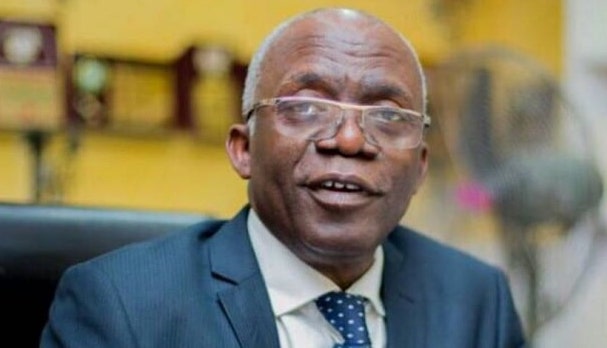Politics
Govt not ready to end ASUU strike, says Femi Falana

Human rights activist, Femi Falana, has stated that the ongoing industrial action by the Academic Staff Union of Universities (ASUU) can be resolved immediately, but the government isn’t making any effort to do so.
Falana in an interview with news men on Friday said that “if the government listens to ASUU all the strikes are avoidable.”
ASUU embarked on an initial four weeks strike on 14 February, demanding the government to honour the agreements it had entered with the union.
After several meetings without resolution, ASUU continued to extend its strike by a certain period until 29 August when it extended the strike indefinitely.
Despite Justice Polycarp Hamman Wednesday’s ruling, ordering the lecturers to call off the strike, ASUU’s President, Professor Victor Osodeke said that the lecturers won’t go back to work and would appeal the injunction.
“It is about funding… in 1992, ASUU convinced the government that employers of labour should pay education tax because those trained by the government are employed by employers.
“All the government says is we have no money, but the same administration, this year alone, increased fuel subsidy from 443 billion Naira to 4 trillion Naira and we are now being told that before the end of the year may metamorphose into 6.3 trillion.”
“So where are you getting such money to fund waste and fraud but when it comes to education you say you have no money, I think these are some of the issues,” he said.
Read also:ASUU: ‘Court order without key issues addressed is more problems’ — Femi Falana
Falana was of the opinion that the federal government was wrong to have filed the case before the industrial court.
“It was wrong to approach the court. We tried to explain to the court, and the court said they would look at that later.
“We made clear to the court and submitted more than six cases where the same court has warned the minister consistently that you cannot come here without originating your case in the IAP if it relates to trade disputes.
“This is the first time in the history of that court that we have been told that the minister can refer a case to the national industrial court without going through the Industrial Arbitration Panel (IAP).”
“Because the NIC under the current labour law regime in Nigeria is an appellate chamber of the AIP. So, it is an appellate court. It is only when individuals are sacked that you want to challenge your employer or there are intra or inter-union disputes that you approach the national industrial court.
“The court found that this is a trade dispute and that there was no reference to the IAP, but the court in its wisdom decided to intervene, and the only way you can show your dissatisfaction is to approach the appeal court which ASUU has decided to do,” he said.
Join the conversation
Support Ripples Nigeria, hold up solutions journalism
Balanced, fearless journalism driven by data comes at huge financial costs.
As a media platform, we hold leadership accountable and will not trade the right to press freedom and free speech for a piece of cake.
If you like what we do, and are ready to uphold solutions journalism, kindly donate to the Ripples Nigeria cause.
Your support would help to ensure that citizens and institutions continue to have free access to credible and reliable information for societal development.






















